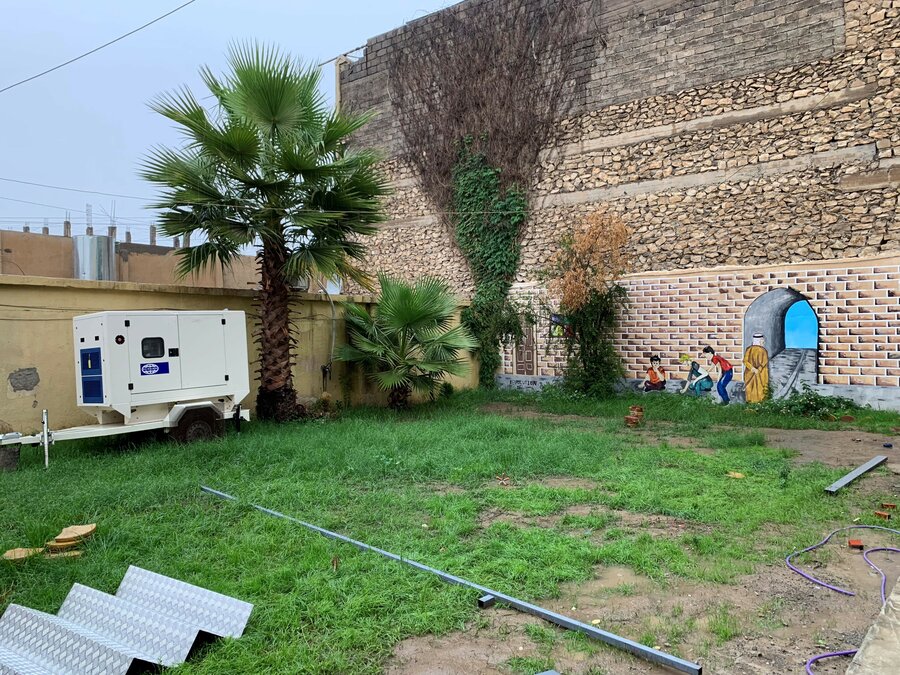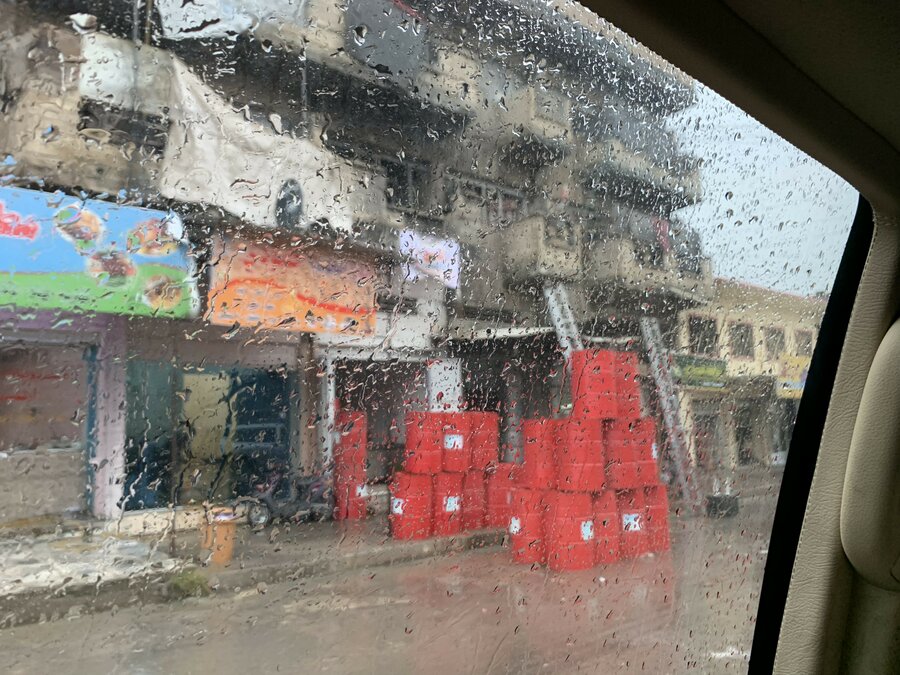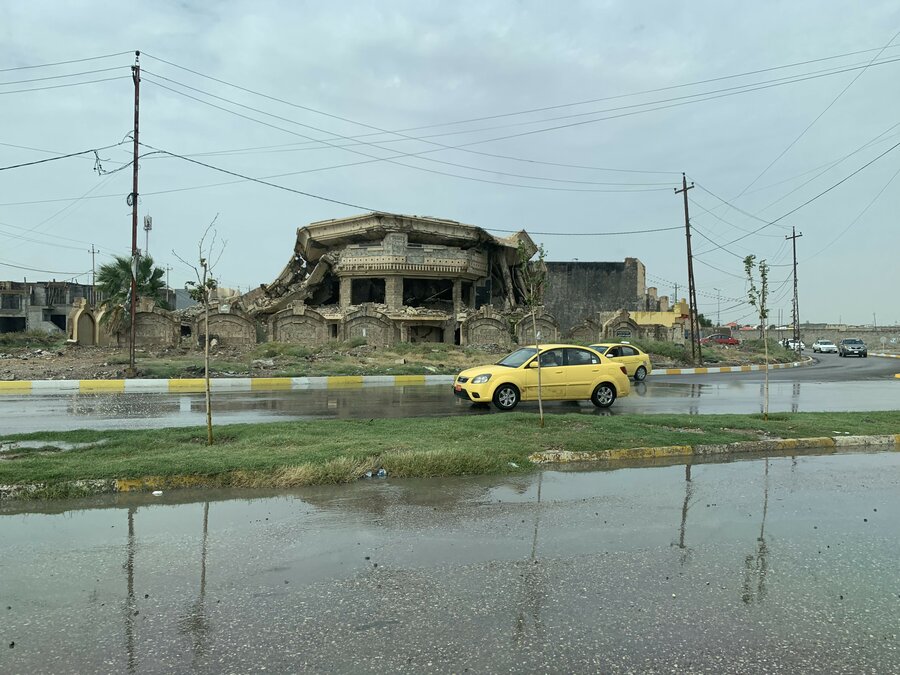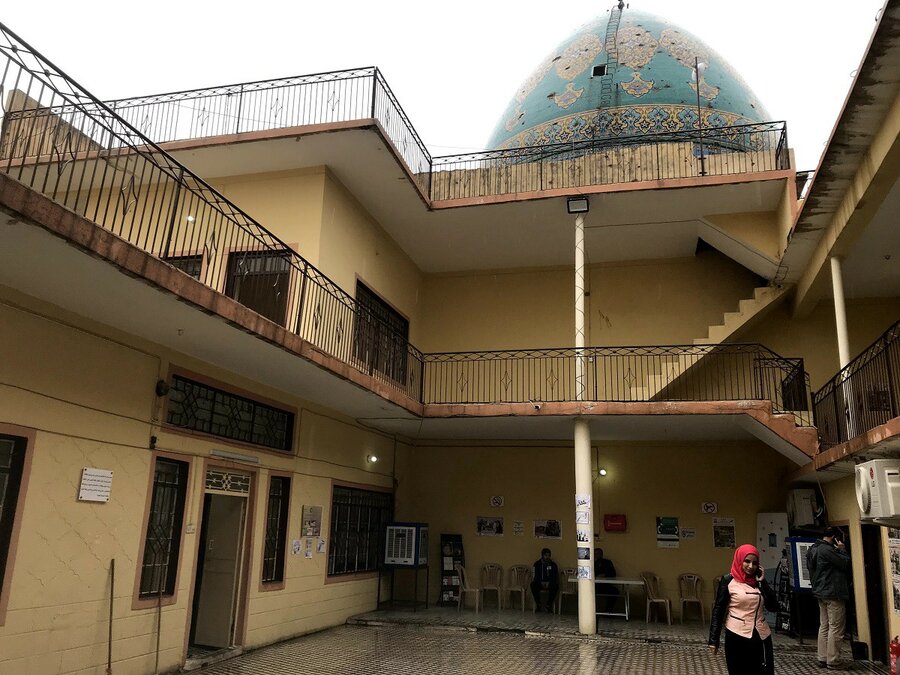Hope emerges in West Mosul

Lightning cracks the sky and rain hammers down as we cross the Fourth Bridge over the Tigris into West Mosul. This place bore the brunt of the battle to liberate the city from the Islamic State of Iraq and the Levant (ISIS): 15 districts were razed to the ground; thousands of people were killed and around three million displaced.
There is graphic evidence of what this ancient city has gone through: rubble is piled up knee-deep on every street, furniture spills out of destroyed buildings and some structures have been bombed so badly that only their frames remain. The Old City is a dust-brown wasteland of ruins.

But signs of life are starting to show: carts laden with pomegranates and deep green watermelons, barber shops, cafeterias with roasted chickens turning on rotisseries, and small shops selling tools and oil.
On an unassuming street in Al Jadeda neighbourhood is one of the Community Resource Centres (CRC) the International Organization for Migration has set up in areas where displaced people are returning. These centres serve as hubs of centralized information and service referral for affected people — whether they are returnees, people displaced by conflict from other parts of the country or locals. Agencies and organizations convene awareness sessions on topics ranging from mine risk education and legal assistance to English classes and writing CVs.

This is one of three centres that the Emergency Telecommunications Cluster (ETC) — a global network of organizations led by the World Food Programme (WFP), working to provide shared communications services in humanitarian emergencies — is supporting along with another in East Mosul and one in Fallujah, with more to follow. The ETC is preparing to install a TV screen on which awareness messages and daily session schedules can be broadcast, a generator to use as a back-up power solution, Internet connectivity and a ticketing system. This is part of the ETC's Services for Communities project to ensure that people have access to life changing — and sometimes life-saving — communication and information. Since its opening last summer, some 1,800 people have visited the centre.
One man, Fares, is here to get advice from a legal specialist on how he and his family can leave Iraq permanently; as a fighter with the coalition, his name is on the ISIS blacklist and he lives in terror of being found.

Mother-of-four Asla waits patiently with her 5-year-old daughter who is blind. She is seeking some form of disability allowance to help her and her family survive. At the height of the fighting, Asla and her family fled their home in suburban Mosul to find safety in the Hammam Al Alil camp for internally displaced people. With their home now destroyed, the family has had to move on to the city to try and start a new life.
"Insha'allah" (God willing) is all Asla can say when asked if she has hope for the future of her children. As she moves to stroke her daughter's hair, the sleeve of her abaya reveals a faded tattoo on the inside of her left arm: ‘alhaya athab' (life is agony), it reads. "Isn't it true?" she says with a faint smile. Her sleeve falls back; the message disappears.


